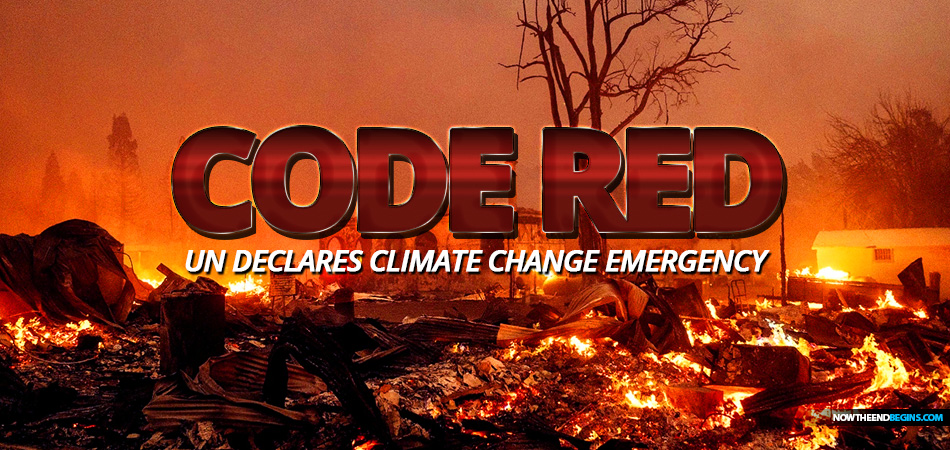
UN Secretary General António Guterres called the Climate Change findings a 'code red for humanity' adding that the "alarm bells are deafening, and the evidence is irrefutable."
Today the UN 'sounded the alarm', and like Jack Nicholson's character in 'A Few Good Men', they have 'issued the Code Red' on Climate Change, saying that the damage that has been done cannot be undone for maybe another thousand years. Maybe. But the good news is that the Carbon Tax will help hold off the inevitable. Welcome to the Unintentional Climate Comedy Hour where the joke is always...on you! Did I say 'unintentional'? How funny.
"But the day of the Lord will come as a thief in the night; in the which the heavens shall pass away with a great noise, and the elements shall melt with fervent heat, the earth also and the works that are therein shall be burned up." 2 Peter 3:10 (KJB)
Yes, the climate is indeed changing as the world prepares itself for the Day of the Great King, and here's a prediction. The feeble and puny efforts of unsaved man will accomplish one thing, it will make God laugh as He launches well-deserved judgments upon a population that has rejected Him and His only begotten Son, Jesus Christ. Fire away, Lord, fire away.
 YES, OUR GLOBAL CLIMATE IS CHANGING RAPIDLY, AND NO, THERE IS NOTHING YOU CAN DO ABOUT IT AND THERE IS NO POWER ON EARTH THAT CAN STOP IT
YES, OUR GLOBAL CLIMATE IS CHANGING RAPIDLY, AND NO, THERE IS NOTHING YOU CAN DO ABOUT IT AND THERE IS NO POWER ON EARTH THAT CAN STOP IT
UN releases blistering 'code red' assessment on the state of climate change
FROM NBC NEWS: Climate change is changing Earth in ways that are "unprecedented" in thousands of years — and in some cases, hundreds of thousands of years — according to a blistering report released Monday by the United Nations.
The sobering assessment also found that some changes that are already playing out, such as warming oceans and rising sea levels, are "irreversible for centuries to millennia."
U.N. Secretary General António Guterres called the findings a "code red for humanity," adding that the "alarm bells are deafening, and the evidence is irrefutable."
The report is the most comprehensive assessment from the U.N.'s Intergovernmental Panel on Climate Change (IPCC) since 2013 and provides the strongest case yet for human-caused global warming, saying it's "unequivocal that human influence has warmed the atmosphere, ocean and land."
The report also found that climate change is intensifying, occurring at an accelerated pace and is already affecting every region of the planet.
"It has been clear for decades that the Earth's climate is changing, and the role of human influence on the climate system is undisputed," Valérie Masson-Delmotte, co-chair of the IPCC's Working Group I, said in a statement.
Ko Barrett, the IPCC’s vice- chair and a senior climate adviser at the National Oceanic and Atmospheric Administration, told NBC News that the report shows that no matter what humans do going forward, the future will be hotter than it is now.
"It can be kind of demoralizing or depressing to think that there are so many things that are kind of irreversible for a long period of time," Barrett said. "But the good news is that, that these irreversible changes can be slowed down with rapid, strong and sustained reductions in greenhouse gas emissions."
The IPCC, established in the late 1980s, consists of thousands of scientists across 195 member governments who pore over the most recent published and peer-reviewed research on global warming and compile the findings into a report on the current state of the climate. The assessment, which includes a look at the future risks and impacts of climate change, typically represents consensus within the scientific community. More than 230 authors contributed to the latest report. READ MORE
No comments:
Post a Comment